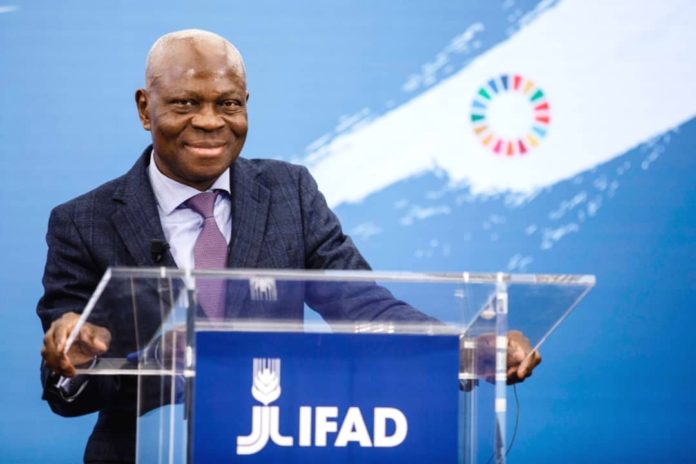The International Fund for Agricultural Development (IFAD) led by Togolese Gilbert Fossoun Houngbo wants to further support the local agricultural sector over the next 6 years.
The consultations opened a few days ago in Lomé have enabled IFAD and officials from the Togolese Ministry of Agriculture to agree on the priorities.
Essentially, there are four major projects focused primarily on improving agricultural yields and productivity; facilitating access to finance, and the market for farmers.
Support for actors in agricultural value chains through the acceleration of MIFA S.A; the valuation and transformation of productions via the Adéticopé industrial platform (PIA); the development of the Kara pilot farm; the implementation of the agricultural land law for the securing land transactions are the main pillars of cooperation.
First. This will involve developing inclusive production systems that sustain access for small producers and their organization to technologies and knowledge with macro-resilient performance.
In this context, a number of areas of action have been listed: the development of sustainable solutions in terms of water management and management, the implementation of land reforms and land consolidation processes, the development of new fertilization formulas of soils, access for small producers to efficient and climate-resilient inputs, modernization of agricultural advice and the promotion of digital technologies, support for producer organizations in the agro-ecological transition process.
Second. Facilitating the integration of family farms of rural women and youth into agricultural markets and business partnerships with a view to increasing added value and creating employment opportunities.
The proposed investment actions relate, among other things, to infrastructure facilitating the connection of production basins to different market segments, processing and packaging technologies and techniques for marketing, partnership initiatives, productive activities with agro-SMEs, aggregators, and institutional markets, support for entrepreneurship of young people and women in agro-sylvo-pastoral sectors, strengthening of producer organizations for the implementation of the strategy of the productive alliance.
Third. Institutionalization of dialogue at the sectoral level with the active involvement of producer organizations of local authorities in the private sector in the process of preparing for the implementation of agricultural development strategies and programs in the coordination.
To do so, the investments proposed to relate to the strengthening of peasant leadership, including the female and youth components of producer organizations in order to improve their condition in the processes, support for the improvement of the planning, monitoring, and evaluation system. sector and finally support for initiatives aimed at improving civic engagement.
Basically, IFAD’s portfolio in the implementation of all its actions includes a project in the completion phase (National Project for the Promotion of Rural Entrepreneurship-PNPER), a mid-term project (Promifa), and an start-up phase (PRIMA).
The new IFAD country strategy (COSOP) once validated by the parties will be rolled out over a period of 6 years (2021-2026).








